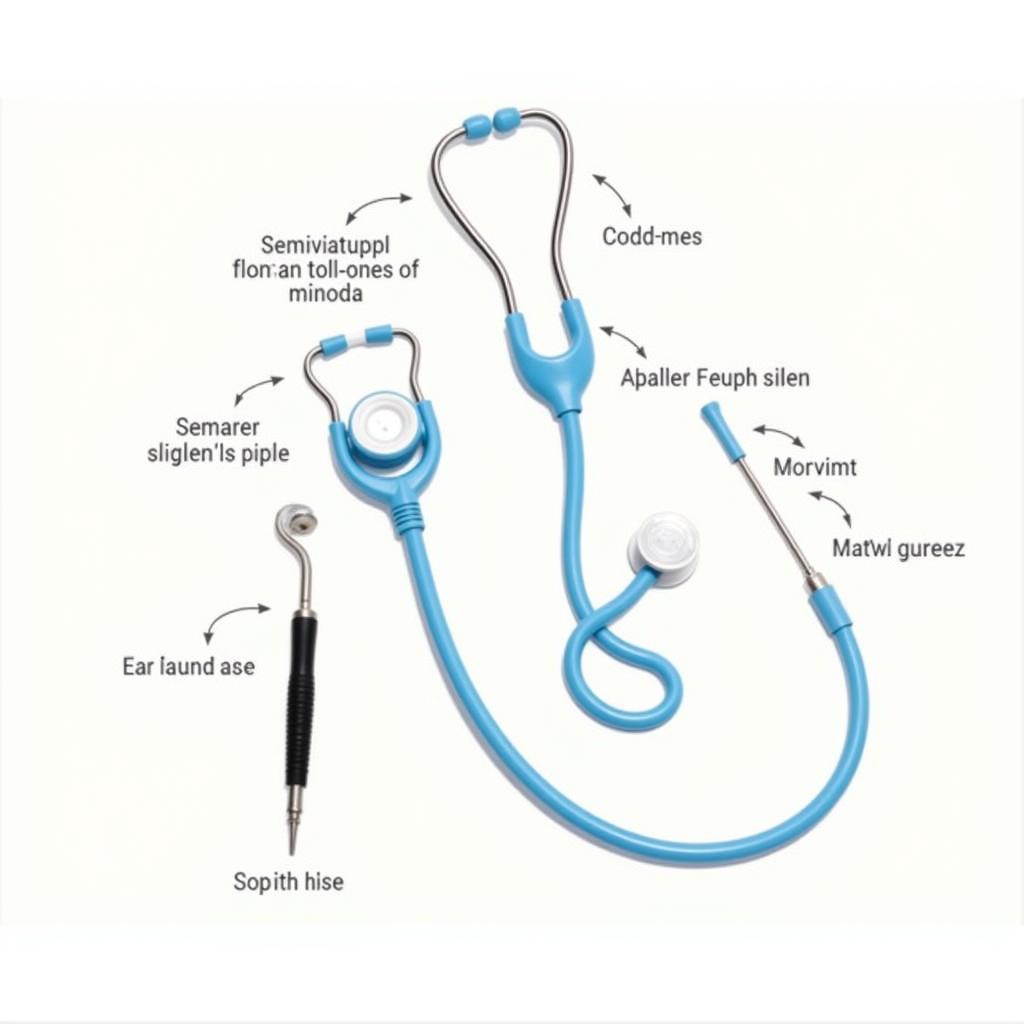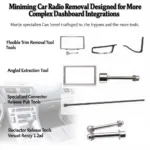Pediatric primary care requires specialized tools to effectively diagnose and treat young patients. This article will explore the best tools for pediatric primary care, covering everything from essential diagnostic equipment to the latest technological advancements. Understanding these tools is crucial for providing high-quality care and ensuring the well-being of children.
Essential Diagnostic Tools for Pediatric Primary Care
Effective pediatric primary care relies on a combination of traditional diagnostic tools and cutting-edge technology. These tools help healthcare providers accurately assess a child’s health, identify potential issues, and develop appropriate treatment plans. Here’s a breakdown of some essential diagnostic tools:
- Stethoscope: A fundamental tool for listening to heart, lung, and bowel sounds. Pediatric stethoscopes often feature smaller diaphragms designed for children’s smaller chests.
- Otoscope: Used to examine the ear canal and eardrum, essential for diagnosing ear infections, one of the most common childhood ailments.
- Ophthalmoscope: Allows visualization of the retina and optic nerve, crucial for detecting eye problems and assessing overall health.
- Thermometer: Accurate temperature measurement is vital in pediatric care. Digital thermometers, including tympanic and temporal artery thermometers, offer quick and reliable readings.
- Blood pressure monitor: Regular blood pressure monitoring is essential for detecting hypertension and other cardiovascular issues, even in young patients. Pediatric cuffs ensure accurate readings.
 Pediatric Diagnostic Tools: Stethoscope and Otoscope
Pediatric Diagnostic Tools: Stethoscope and Otoscope
Leveraging Technology in Pediatric Primary Care
Technology plays an increasingly important role in modern pediatric primary care. From electronic health records (EHRs) to telemedicine platforms, these advancements enhance the efficiency and effectiveness of care delivery.
- Electronic Health Records (EHRs): EHRs streamline patient information management, allowing for easy access to medical history, allergies, and immunization records.
- Telemedicine: Telemedicine offers remote consultations and monitoring, improving access to care for families in remote areas or with limited mobility.
- Growth Charts and Developmental Screening Tools: Digital growth charts and developmental screening apps provide quick and accurate assessments of a child’s growth and development, helping identify potential delays or concerns.
Best Practices for Using Pediatric Primary Care Tools
Effectively utilizing pediatric primary care tools requires not only proper training but also a patient-centered approach. Creating a comfortable and trusting environment is especially important when working with children.
- Age-Appropriate Communication: Communicate with children in a way they can understand, using clear and simple language.
- Distraction Techniques: Employing distraction techniques can help ease anxiety during examinations and procedures.
- Parent Involvement: Involving parents in the examination and treatment process is crucial for building trust and ensuring compliance.
Conclusion
Choosing the best tools for pediatric primary care involves selecting both essential diagnostic equipment and embracing technological advancements. By combining traditional methods with modern technology and prioritizing a patient-centered approach, healthcare providers can deliver optimal care and promote the well-being of children. This comprehensive understanding of the best tools for pediatric primary care empowers professionals to make informed decisions and provide the highest quality care to their young patients.
FAQ
- What is the importance of using pediatric-specific diagnostic tools?
- How can technology improve pediatric primary care?
- What are some effective communication strategies for working with children?
- How can parents be actively involved in their child’s healthcare?
- What are some common challenges in pediatric primary care and how can they be addressed?
- What are the latest advancements in pediatric diagnostic tools?
- Where can I find more information on pediatric primary care resources?
Need assistance? Contact us via WhatsApp: +1(641)206-8880, Email: [email protected] or visit us at 910 Cedar Lane, Chicago, IL 60605, USA. We have a 24/7 customer support team.

